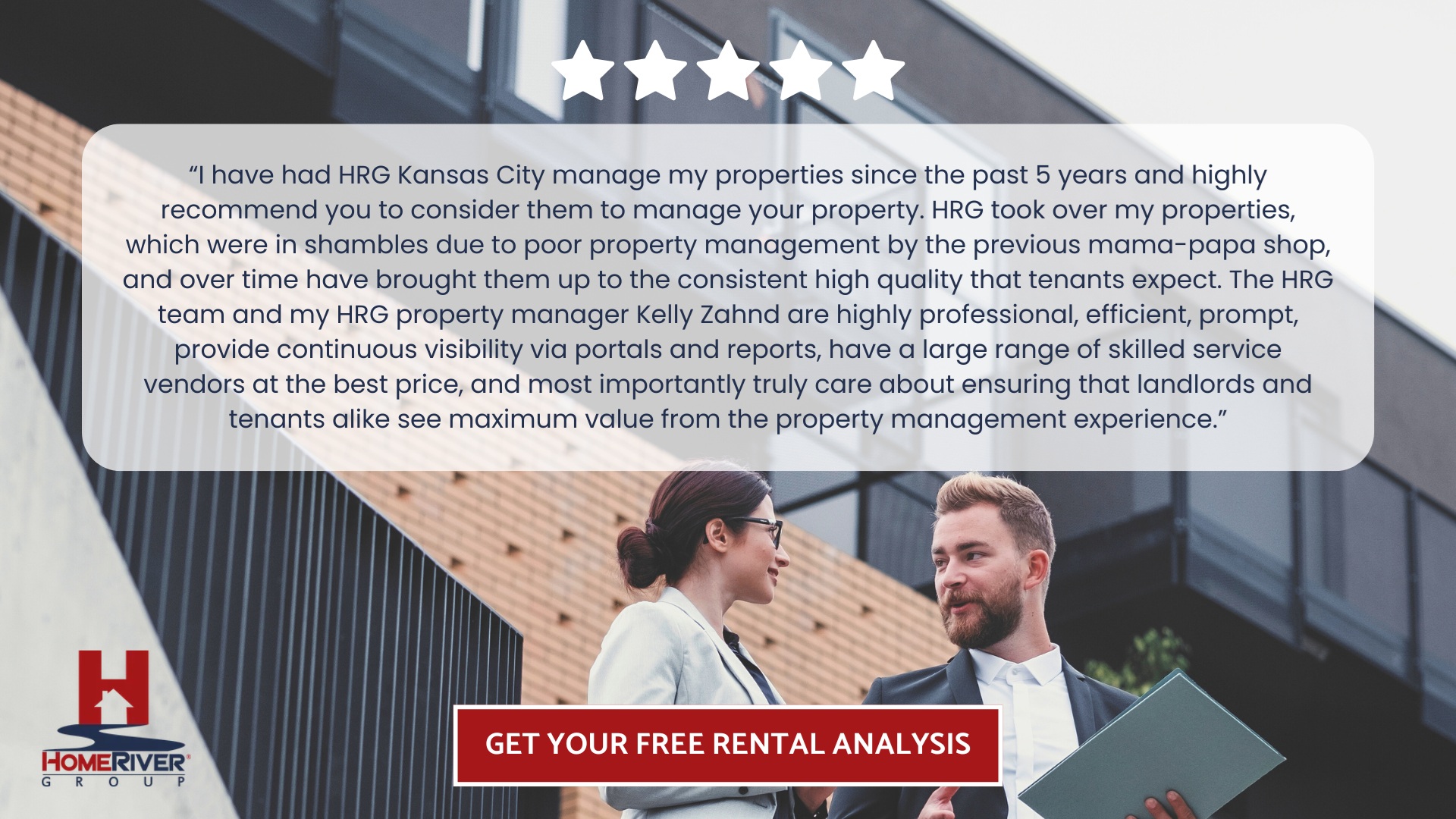
At HomeRiver Group, we understand the significance of staying informed about Arizona tenant rights to safeguard your investment and foster positive tenant relationships. Our unique combination of local market expertise and centralized operations enables us to provide unparalleled service, ensuring your property is managed efficiently and effectively.
Navigating the complex landscape of tenant rights is crucial for any landlord, especially in Arizona, where regulations are specific and must be adhered to for a successful property management experience.
This article will explore the key elements of Arizona tenant rights, essential legal requirements, and practical strategies to help landlords maintain positive, compliant relationships with their tenants.
Overview Of Arizona Tenant Rights
Understanding tenant rights is crucial for landlords looking to manage properties in Arizona successfully. These rights are designed to ensure a fair and equitable housing environment, protecting tenants while providing guidelines to landlords. As a property management company with extensive reach and local expertise, we want to ensure landlords are well-informed about these key points.
Right To A Habitable Home
In Arizona, tenants have the right to live in a safe and habitable environment. Landlords must ensure that the property adheres to state and local building codes, covering aspects like structural integrity, plumbing, heating, and safety. Staying informed about these codes can prevent potential liabilities and enhance tenant satisfaction.
Right To Privacy
Tenants in Arizona are entitled to privacy, meaning landlords must respect entry protocols. Unless otherwise specified, landlords must provide at least 48 hours notice before entering the rental property for maintenance or inspections and have a valid reason aligned with Arizona tenant law.
Security Deposit Regulations
Arizona law limits the collection and return of security deposits. The maximum allowable security deposit is one and a half months' rent. Furthermore, landlords have 14 days to return the deposit after a lease ends, accounting for any justified deductions. Clear communication and documentation of any claims against the deposit can help maintain a positive landlord-tenant relationship.
By keeping up with these rights and adapting accordingly, landlords can ensure a harmonious interaction with their tenants, reduce conflicts, and foster a stable rental ecosystem.
Termination Of Lease And Eviction Processes
Understanding the intricacies of terminating a lease and navigating eviction processes in Arizona is crucial for landlords to protect their investments and maintain compliance with state regulations. Arizona tenant rights provide specific guidelines and procedures to ensure fairness.
Adhering To Lease Terms And Proper Notice
When terminating a lease, landlords must carefully follow the lease agreement terms and provide the tenant with the correct notice period. For a month-to-month rental agreement, a 30-day notice is standard, while a longer lease may require a more extended notice based on the contract’s stipulations.
Eviction Due To Non-Payment Or Lease Violations
Arizona law outlines specific steps if eviction becomes necessary, whether for non-payment of rent or lease violations. The first action is serving a notice of non-compliance, such as a 5-day notice for unpaid rent. Landlords can file an eviction lawsuit to recover their property if the issue remains unresolved.
Importance Of Clear Communication
It is key to maintain open and transparent communication with tenants throughout each stage of lease termination or eviction. Clear explanations of rights, responsibilities, and timelines help minimize disputes and foster a more cooperative atmosphere.
Professional Guidance From HomeRiver Group
At HomeRiver Group, we emphasize providing exceptional service combined with local expertise to effectively guide property owners through these challenges. Our national platform ensures you have access to comprehensive property management solutions—keeping your property a priority while ensuring full compliance with Arizona’s legal requirements.
Handling Repairs And Maintenance Requests
In Arizona, landlords are legally obligated to maintain habitable living conditions for tenants, including timely repairs and maintenance. Landlords must establish a clear and efficient process for handling such requests to ensure compliance with state laws and tenant satisfaction.
Swift and Effective Communication: At HomeRiver Group, we emphasize prompt responses to maintenance issues by leveraging our centralized operations and local networks. Providing multiple channels—such as online portals, email, or phone—makes it easier for tenants to submit requests and receive timely acknowledgments.
Emergency vs. Non-Emergency Repairs: It is vital to distinguish between urgent issues (like plumbing leaks or heating failures) and routine maintenance. Urgent repairs require immediate attention, and HomeRiver Group’s asset management capabilities prioritize swift resolutions to maintain safe, comfortable living conditions.
Regular Inspections For Proactive Solutions: Routine property inspections can identify minor problems before they escalate into costly repairs. Partnering with a national leader like HomeRiver Group ensures professional oversight, balancing tenant satisfaction with the long-term health of your investment.
Standardized Procedures For Tenant Satisfaction: A consistent protocol for handling repair requests streamlines compliance with Arizona tenant rights and enhances the overall tenant experience.
Tenant Remedies For Landlord Violations
In the landscape of Arizona tenant rights, understanding what actions tenants can take when their rights are violated is crucial for both landlords and renters. Landlords should be keenly aware of these remedies to ensure compliance and uphold their end of the rental agreement, while renters should know them to protect their living conditions.
Repair Requests And Right To Withhold Rent
If a landlord fails to make necessary health and safety repairs, tenants may issue written notice demanding the repairs. Should the landlord not respond within the legal timeframe, tenants have the right to withhold rent or use the rent money to carry out necessary repairs, subject to state laws.
Termination Of Lease
A severe violation, such as failing to provide essential services like water, heating, or electricity, may grant the tenant the right to terminate their lease agreement. In such situations, tenants must provide written notice to the landlord and may seek relocation expenses.
Legal Action
Tenants in Arizona have the option to file a lawsuit against landlords who violate tenant rights. Such actions might be taken in instances of unlawful eviction, failure to return a security deposit, or breaches of the lease agreement. Tenants can sue for damages or seek court orders compelling a landlord to comply with their obligations.
At HomeRiver Group, we value transparency and legal adherence, ensuring landlords and tenants understand their rights and responsibilities. Our dedication to compliance and exceptional service ensures that your Lake Havasu property management needs are handled with professionalism and local expertise.
Obligations And Duties Of Landlords
Understanding and adhering to Arizona tenant rights is crucial for landlords to maintain good relationships with tenants and ensure legal compliance. Landlords have specific obligations and duties encompassing various aspects of property management and tenant relations.
Maintenance And Repairs
Landlords must ensure their rental properties meet local health and safety standards. This includes timely repairs of structural components, plumbing, electrical systems, and other critical amenities. Regular maintenance checks and prompt responses to repair requests can prevent complications and contribute to tenant satisfaction. As part of offering exceptional service with local expertise, HomeRiver Group emphasizes the importance of efficient maintenance routines to protect the property's value and provide peace of mind to tenants.
Security Deposits
In Arizona, landlords must adhere to specific regulations regarding security deposits, including the amount that can be charged and the timeframe for its return. Landlords must provide a written accounting of any deductions from the security deposit, ensuring transparency and fairness in tenant transactions. Keeping clear, organized records of all financial transactions is essential for avoiding disputes.
Habitability And Safety
Landlords have a fundamental duty to ensure that a property is habitable and safe. This includes providing essential services such as water, electricity, and sanitation. The property should also be free from significant pest infestation. At HomeRiver Group, we can help landlords efficiently address these critical concerns, ensuring compliance with Arizona tenant rights and enhancing tenant retention.
Lease Agreements And Legal Compliance
Landlords must have clear and comprehensive lease agreements that comply with Arizona state laws. These agreements should outline the terms of tenancy, the responsibilities of both parties, and protocols for any potential disputes.
At HomeRiver Group, we offer extensive support in crafting and managing these agreements, ensuring that the rights of both landlords and tenants are respected and upheld. If you or your tenants are looking for cost-effective solutions, how can someone save money on their rent? We offer practical strategies like negotiating lease terms, exploring utility savings, and taking advantage of discounts or promotions.
Final Thoughts
Understanding Arizona tenant rights can help landlords foster healthy and trustworthy relationships with their tenants while ensuring legal compliance. At HomeRiver Group, we stand by the principle that knowledgeable property management and dedication to tenant satisfaction are vital to achieving rental success. As a nationally recognized Phoenix property management company, we possess the resources and expertise to navigate the complexities of tenant rights in Arizona and beyond.
By prioritizing these rights, landlords protect themselves from potential legal pitfalls and enhance the quality of their rental investments. We invite you to partner with HomeRiver Group to ensure your property management approach aligns with state regulations and improves tenant satisfaction.
A well-informed landlord is a successful one. At HomeRiver Group, your property is our priority, and we are committed to guiding you toward long-term rental success with professionalism and care.
Read also:
Can A Landlord Enter Without Permission? Tenant Privacy Rights Explained
What A Landlord Cannot Do In Arizona: Understanding Tenant Rights And Legal Limits
Frequently Asked Questions About Arizona Tenant Rights
What are the basic responsibilities of a landlord in Arizona?
In Arizona, landlords are required to maintain rental properties to ensure they are safe and habitable. This includes making necessary repairs, ensuring utilities are in working order, and complying with health and safety regulations. Regularly maintaining the property's common areas and adhering to applicable housing codes are also part of a landlord's obligations.
What is the implied warranty of habitability, and how does it affect Arizona landlords?
The implied warranty of habitability is a legal concept that mandates landlords to provide tenants with a living environment that meets basic health and safety standards. In Arizona, landlords must promptly address issues like plumbing leaks, electrical hazards, and pest infestations that could impact the tenant's health and enjoyment of the property.
How much notice must a landlord give before entering a rental property?
Arizona law requires landlords to give tenants at least 48 hours' notice before entering their rental property. The entry must be for a valid reason, such as repairs or inspections, and must occur at reasonable times. Notice can be shorter if both tenant and landlord agree to it or in case of emergencies.
Can a landlord in Arizona charge a rental application fee?
Yes, landlords in Arizona can charge prospective tenants a rental application fee. This fee can cover processing the application and conducting background and credit checks. Landlords need to be transparent about the fee and any non-refundable portions.
What are the limits on security deposits in Arizona?
In Arizona, landlords can charge a security deposit of up to 1.5 times the monthly rent. This deposit will cover any potential damages or unpaid rent upon lease termination. The lease agreement should outline clear communication about the terms and conditions related to the security deposit.
How long must a landlord return the security deposit after the tenancy ends?
Arizona landlords are required to return the security deposit within 14 days (excluding weekends and holidays) after the lease ends and the tenant vacates the property. The refund should include an itemized list of any deductions made from the deposit.
What conditions must be met for a landlord to withhold part or all of a security deposit?
A landlord can withhold all or part of a security deposit if the property suffers damages that exceed normal wear and tear, unpaid rent, or cleaning fees specified in the lease. Any deductions from the security deposit must be documented, and the tenant must be provided with an itemized statement.
What are the requirements for a legal eviction process in Arizona?
The legal eviction process in Arizona requires landlords to issue a notice to the tenant specifying the reason for eviction and allowing time to remedy the situation if applicable. Common reasons include non-payment of rent or violation of lease terms. If the issue is unresolved, landlords can file a lawsuit for possession through the court. Following due process ensures that the eviction is legally compliant.










